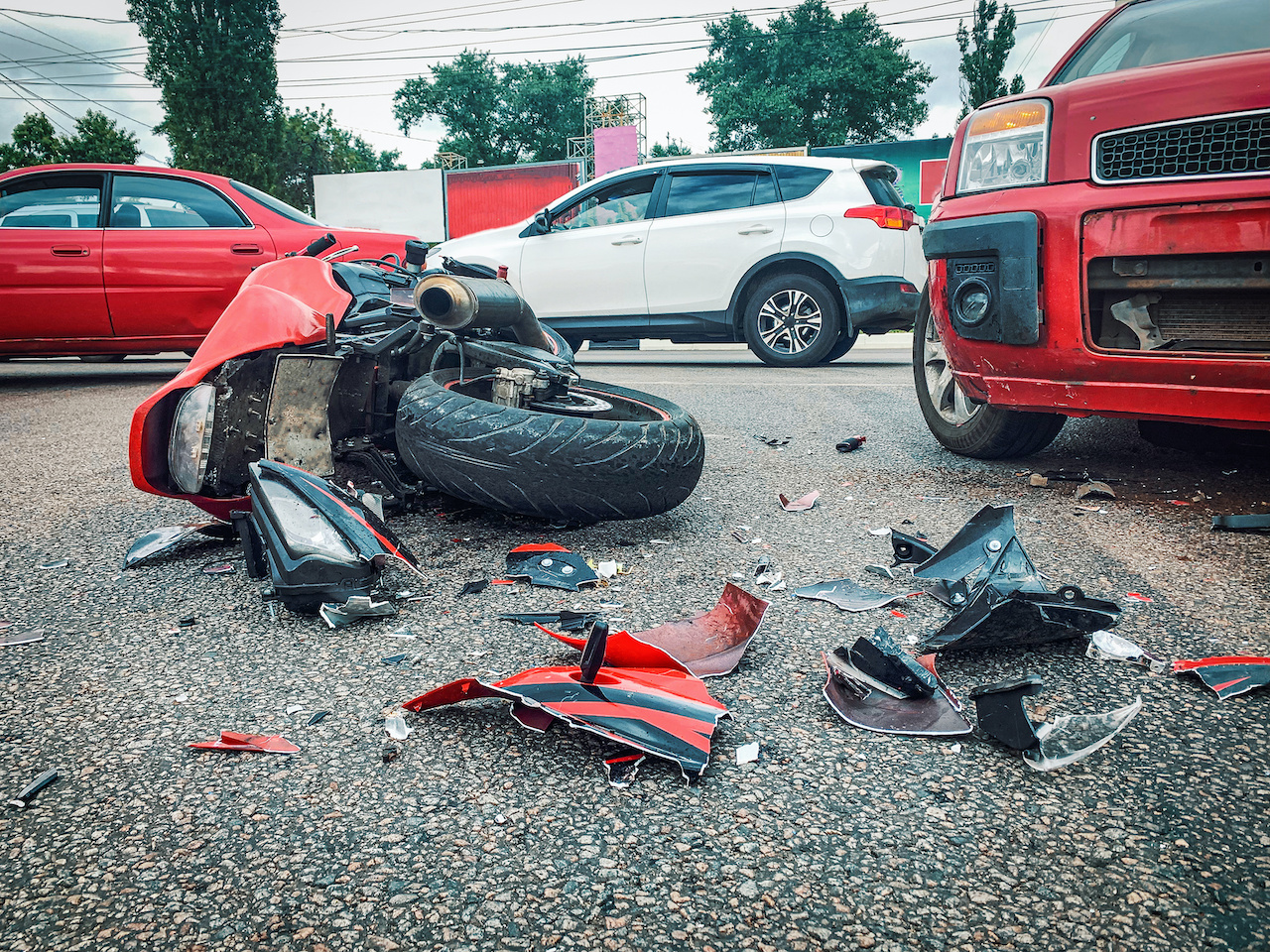Motorcycles do not have the standard safety features that come with cars or other passenger vehicles. As a result, motorcycle accidents involve an exponentially higher risk of injury or even death. Statistically, motorcyclists are 5 times more likely to get injured in an accident. A more worrying statistic shows that motorcyclists are 26 times more likely to die if a crash occurs.
These numbers have dropped considerably from the earlier part of this decade, due in part to motorist information programs encouraging drivers of other vehicles to watch out for motorcyclists. Despite the decline in fatalities, the risk of injury or death while operating a motorcycle remains high, likely because there are more cars on the roads and more distractions to the drivers of those cars. Too often, an accident has occurred before the driver of a car has even seen the motorcyclist.
In this article, we outline the specific actions you need to take immediately following a motorcycle accident.
What Should I Do After a Motorcycle Accident?
1. Check on Yourself and Anyone Else Involved
The very first thing you should do after an accident is ensure that you and anyone else involved is not in immediate danger. Call an ambulance if necessary, and if you’re unable to make the call yourself, see to it that a pedestrian or bystander make the call on your behalf.
2. Get the Other Driver’s Insurance & Vehicle Information
Unfortunately, motorcycle accidents often involve injuries. If there are no serious injuries, the next thing you should do is make sure you get the needed information from the other drivers involved. This includes personal, vehicle, and insurance information. They will also need your information, so make sure to provide it.
3. Make Sure You Gather and Keep All Evidence
Following an accident, you need to gather and preserve all evidence on the scene. First, do not get rid of or repair the motorcycle or other vehicles involved until you speak with an attorney. Second, be sure to take photos of all vehicles before they are moved or altered. If possible, take video as well. Note the distance of any skid marks and the point of impact. Make sure you get as much information as possible from witnesses, responding officers, and medical personnel on the scene. All of this will be important in proving which of the parties involved in the accident was truly at fault.
4. Visit the Doctor and Document Your Injuries
Even if you have not sustained serious injuries, we recommend going to your doctor. In addition to treating your injuries, this will also serve as proof of your injuries in court. Insurance companies often try to challenge claims by using delays in seeking medical attention. You can avoid those challenges by getting medical attention immediately after the accident.
5. Find the Applicable Sources of Insurance
When it comes to motorcycle accidents, there might be numerous types of insurance involved. The other driver might have liability insurance, and you could be covered under more than one policy with your insurer. Contact an attorney ASAP following the accident so that they can deal with the insurance companies.
6. Consult a Lawyer
All drivers have a duty to drive responsibly, but some drivers do not take that duty seriously. Most automobile and motorcycle accidents are entirely preventable, so when an accident does occur it is generally because someone made a mistake. Those mistakes can cause serious pain and suffering, loss of income, emotional and psychological damage, and a host of other consequences.
Find adequate representation to ensure the best possible outcome, and hire an attorney who has experience representing motorcycle accident victims.
Conclusion
If you or a loved one has been injured in a motorcycle accident in North Florida or Southwest Georgia, the attorneys at Scott & Wallace in Tallahassee, Florida can help. Contact attorneys Robert Scott & Clint Wallace for a free consultation.

